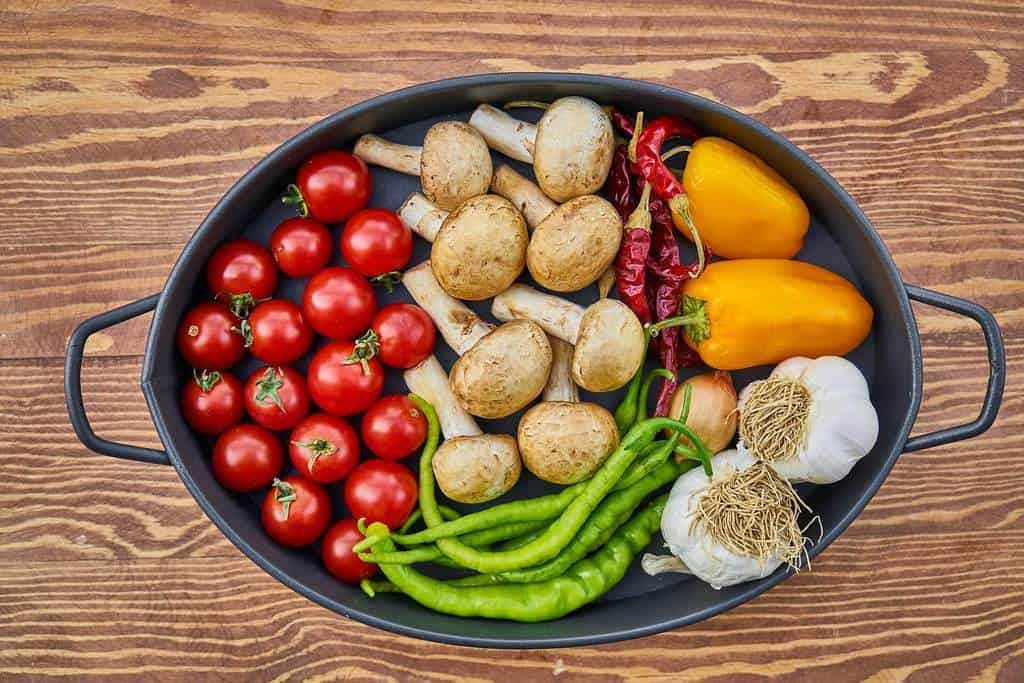What is Inflammation?
Inflammation is a natural response to your body and occurs when infections, injuries, and toxins are present. Your body releases antibodies and proteins, as well as increased blood flow to the damaged area, in an attempt to heal itself.
As we get older, inflammation occurs more regularly. Inflammation can be irritating and can also be painful. Rheumatoid Arthritis is a common condition for ageing bodies. This condition occurs when your body’s immune system targets the linings of your joints. Rheumatoid Arthritis is an example of a condition that inflammation can make a lot worse.
Frustrated with food waste or don't know where to start with a shopping list? Try a food subscription box to wash those worries away and put your diet - and finances - on the right track!
What are the Symptoms of Inflammation?
Chronic inflammation has a causal relationship with conditions such as hypertension, diabetes, atherosclerosis, and cancer. As such, it's essential to keep inflammation under control. Symptoms of chronic inflammation include:
- Body pain.
- Constant fatigue and insomnia.
- Depression, anxiety and mood disorders.
- Constipation, diarrhoea, and acid reflux.
- Weight Gain or weight loss.
How Can You Prevent Inflammation?
There is medication on the market you can purchase over the counter. These are often very effective and are quick reliefs. However, for longer-term relief, a change in your diet is an easy and healthy solution to inflammation. Here are six foods that will help you prevent and control inflammation.
1. Garlic
Garlic is an exceptionally healthy ingredient and adds flavour to roasts, pasta dishes, and one-pot wonders. This superfood is perfect for swollen joints as the sulphur compounds isolated from garlic exert anti-inflammatory properties. Garlic is an essential base of many cooked meals. It also serves as a great addition to butter in baked potatoes, or simple tomato and butter dishes. Roast some garlic with red onion, courgettes and red peppers to give them more depth and flavour. Put the whole lot into couscous with some feta for a roast veg and couscous salad. Drizzle this with some extra virgin olive oil for an extra health kick!
2. Peppers
Bell peppers are packed with antioxidants. Specifically, they produce quercetin, which helps in preventing damage caused by an inflammatory disease called sarcoidosis. They are also an excellent source of vitamin A, vitamin C, and potassium. Bell Peppers also contain a healthy dose of fibre, folate, and iron. This makes them great for your heart.
In addition to the roast veg recipe above, red peppers also make great additions to chicken dishes. Roast chicken breasts and red peppers together and add cream to the mix once done. Place it over pasta and enjoy an easy midweek dinner. Raw peppers add a satisfying crunch to every bite of a healthy meal. Have them raw in salads with avocado and spinach. Don’t forget the olive oil.
3. Green Tea
Green tea is a relaxing post-meal drink. It helps with digestion and is a great detox beverage. Green tea also contains epigallocatechin-3-gallate, which helps prevent inflammation. The antioxidant reduces the production of inflammatory cytokine and helps prevent damage to the fatty acids in your cells. Green tea’s properties also help prevent heart disease, cancer, Alzheimer’s disease and obesity.
Green tea is also an excellent substitute for tea and coffee in the morning. Drink it after meals to ensure you get the best of its nutritional value. Green tea does contain caffeine; therefore, it is best to drink it in the mornings to ensure you get a good night’s sleep.
4. Nuts and Seeds
Nuts are an excellent source of oil, which can help prevent and control inflammation. Nuts and seeds, such as sunflower seeds and pumpkin seeds, are high in alpha-linolenic acid. This is a type of anti-inflammatory omega-3 fatty acid. Nuts are also rich in magnesium, l-arginine and vitamin E, which may also play a role in keeping inflammation under control. People who have arthritis should make nuts a daily snack between meals.
Nuts are a good snack on their own. They can also be a crunchy addition to salads and roasts. Toast some nuts on the stove and sprinkle them over a salad to give your bowl of green some nutty crunch. Do the same with seeds for the same effect. You can also add nuts to your cereal in the mornings for a good boost to start the day.
5. Dark Chocolate and Cocoa
Any sweet tooths out there? You’ll be pleased to know that preventing and controlling inflammation doesn’t mean sticking only to the fruit and veg. On top of being deliciously rich and decadent, dark chocolate contains antioxidants and flavanols. These reduce your risk of disease and help combat inflammation. To ensure you get all the health benefits chocolate has to offer, make sure you choose one that contains at least 70% of cocoa. If you love the rich stuff, go for an even higher percentage. The more cocoa, the better!
6. Turmeric
Turmeric is a spice, yellow in colour, and high in curcumin. This substance helps contain many antioxidants that can prevent and soothe inflammation. It also helps to prevent heart disease and cancer. Turmeric is easy to incorporate into your diet. It adds spice and flavour to curries and is also a great addition to butternut dishes.
Foods to Avoid
Some foods can contribute to problems with inflammation. White bread, pastries and other refined carbohydrates are high in sugar. Raised blood sugar levels can lead to chronic inflammation. Greasy foods also contribute to inflammation as they produce advanced glycation end-products, more commonly known as AGEs. These compounds directly stimulate inflammation in the body.
Reducing your alcohol intake will also help keep your inflammation under control. When your body breaks down alcohol, it creates byproducts that can set off inflammation. Alcohol also depletes water and nutrients in the body, causing an increase of inflammation and pain in the joints.
Natural Remedies
It’s great to know that you don’t have to overspend on anti-inflammatory medication. A quick trip to your refrigerator or pantry could be the first step on a journey to a healthier you! These foods are great ingredients for tasty and nutritious meals. Inflammation is something that most adults must deal with in one form or another. A good diet can help keep it under control and reduce aches and pains.









